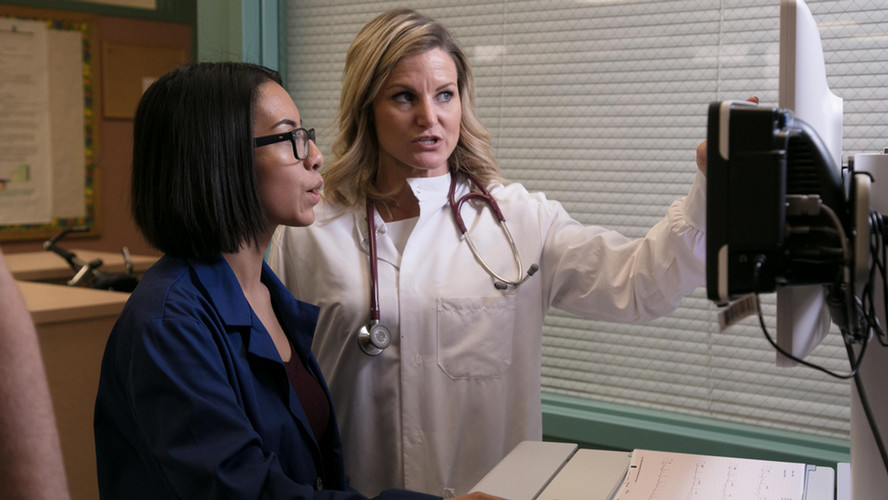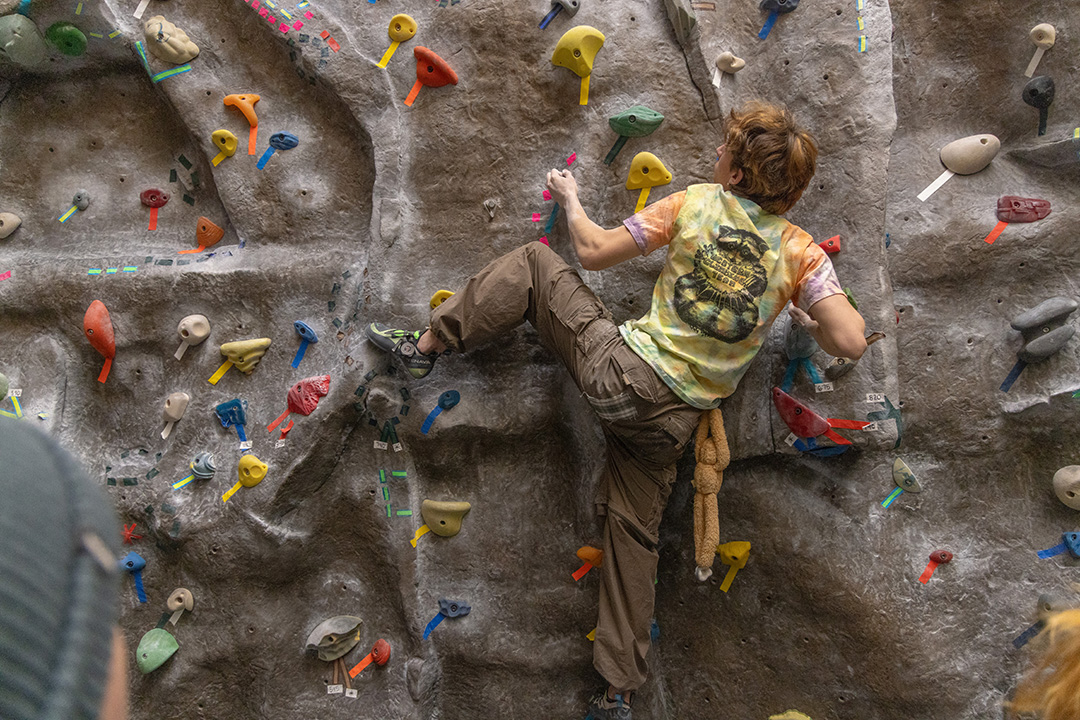
Health Careers
Pre-Medicine Resources
Considering a Career in Medicine?
- Deciding if Medicine is for You
- Careers in Medicine
- Medical Careers
- LCME’s Accredited MD Programs in the US
CWU does not offer a pre-medicine major. However, we do offer a set of prerequisite courses and advising that prepare you for success on the MCAT and entry into medical school. Please consult the appropriate pre-med advisor listed below about recommended coursework likely needed to qualify for medical school.
Recommended Prerequisite Coursework
-
Common Prerequisites
The following coursework is required by most medical schools. These recommendations are based on the scope of knowledge covered in the MCAT Exam. Be sure to discuss all your coursework with your advisor.
- ENG 101** and 102** English Composition 1 & 2 (8 credits)
- MATH 153** PreCalculus I. This is the minimum, see note below and discuss with advisor (5 credits)
- PHYS 111*, 112, 113 Introductory Physics (15 credits)
- OR PHYS 121*, 122, 123 Introductory Physics for Life Sciences (15 credits)
- OR PHYS 181, 182, 183 General Physics (15 credits)
- BIOL 181, 182, 183 General Biology, with labs (15 credits)
- CHEM 181*, 182, 183 General Chemistry, with labs (15 credits)
- CHEM 361, 362, 363 Organic Chemistry, with labs (13 credits)
*MATH 153 is a prerequisite **General Education Course
NOTE: Of the 133 Medical Schools in the US/Puerto Rico, 17 require Calculus (Math 170 Intuitive Calculus OR Calculus I). The only public universities that require it are: Penn State, Texas A&M, and UC-Irvine.
Prerequisites for Medical Schools in Washington State
The Elson S. Floyd College of Medicine - Washington State University (WSU) in Spokane, WA
- English or other intensive writing courses (9 quarter hours)
- Mathematics, Preferred focus: Statistics (9 quarter hours)
- Biology with lab, Preferred focus: Genetics, Molecular Biology (12 quarter hours)
- Organic Chemistry with lab (6 quarter hours)
- Physics with lab (6 quarter hours)
University of Washington School of Medicine (UW) in Seattle, WA
The University of Washington requires that pre-med curriculum “must include college level chemistry and biology, biochemistry, molecular genetics, cell biology/cell physiology, although applicants are not required to take courses with these specific titles.”
- Social Sciences, Humanities or "human condition" (4 semesters or 6 quarters)
- Chemistry and Biology (6 semesters or 9 quarters)
- Physics (2 semesters or 3 quarters) OR physics (1 semester or 2 quarters ) plus calculus or linear algebra (1 semester or 2 quarters)
Pacific Northwest University of Health Sciences (PNWU) in Yakima, WA
- English Composition and Literature (9 quarter hours)
- General Chemistry (12 quarter hours)
- Organic Chemistry (12 quarter hours--4 hours of which can be Biochemistry)
- Physics (12 quarter hours)
- Biological Sciences (18 quarter hours)
-
Recommended Electives
You should choose your electives after discussion with your advisor. The list below is NOT intended to be a course of study plan.
- BIOL 213 Introductory Biostatistics (4 credits)
- BIOL 321 Genetics (5 credits)
- BIOL 353 Comparative Vertebrate Anatomy (6 credits)
- BIOL 354 General Vertebrate Embryology (5 credits)
- BIOL 355 and 356 Human Anatomy and Physiology (10 credits)
- BIOL 430 Cellular Biology (5 credits)
- CHEM 431 Biochemistry (3 credits)
- PSY 421 Human Neuroanatomy (4 credits)
- ANTH 357 Medical Anthropology (4 credits)
- Humanities and Social Sciences electives (25 credits)
Examples of General Education courses in the humanities include:
- PHIL 104 Current Ethical Issues
- PHIL 308 Medical Ethics
- HUM 103 Cultures in Modern Society
- ENG 247 Multicultural Literature
- ENG 347 Global Perspectives in Literature
- Communication courses, such as COM 207 Interpersonal Communication or COM 302 Multicultural Communication
Examples of Social Sciences General Education courses include:
- SOC 101 Social Problems
- SOC 107 Principles of Sociology
- PSY 101 General Psychology or other courses covering the diversity of people and cultures.
CWU Pre-Med Advisors and Faculty Mentors
Meet with the pre-medicine advisor and best-fit faculty mentor as soon as possible to advise you on strong coursework preparation that will generally support your admission. Please check requirements for individual schools as you prepare your applications.
Advisor:
Lyss Endrich
Advising for students with interest in pre-medicine program paired with Biology or Chemistry majors.
Faculty Contacts:
Dr. Blaise Dondji
Department of Biological Sciences
Dr. Levente Fabry-Asztalos
Department of Chemistry
Dr. Ralf Greenwald
Department of Psychology
See also:
Building a Support Network
Applying for Medical School
Applying to medical school is a process that typically takes extensive planning and preparation. Be proactive and start creating a plan today.
Medical schools are looking for well-rounded applicants. While most people believe you must choose a field in the natural sciences for a major, many applicants from humanities or social sciences are accepted into medical school. Choose a major that is the best fit for you. Your major should reflect a career choice you would find fulfilling should you not be successful in earning a coveted and highly competitive spot in a medical school.
That said, keep in mind that you will benefit from taking as many of these prerequisite courses as you can prior to taking your MCAT; not only are they commonly required for admission, but taking them will help you prep for the MCAT.
The American Academy of Family Physicians [AAFP] summarizes the steps you should take to get into medical school.
See Also:- AAMC Applicant Timeline & Applying to Medical School with AMCAS
- The Parts of Your Medical School Application
- AAMC Store (current year's Official Guide to Medical School Admissions and other free resources)
- Medical School Admission Requirements [MSAR]
- American Medical Association MCAT Info
- Prepare for the MCAT Exam [AAMC website]
Paying for Medical School
Did you know assistance is available to help pay for preparing and applying to medical school?- Dennis W. Farrell Pre-Medicine Scholarship (CWU students only)
- MCAT: Free Planning and Study Resources (includes information on the Fee Assistance Program)
- Scholarships and Funding Opportunities in Global Health [AAFP]
Volunteering
Gaining sufficient experience of the medical field is essential before attending medical school. Volunteer work experience in some type of health care facility is highly recommended. Exposure to health related settings (e.g. hospitals, clinics, doctor's offices, etc...) is becoming increasingly important as an admission factor. It is assumed that a qualified applicant will have not only a general understanding of the profession, but also a demonstrated interest and knowledge of what medicine is about.
- Getting Experience including Shadowing a Doctor and What To Do During A Gap Year(s)
- Finding Health Care-Related Volunteer Opportunities
Local Volunteer Opportunities:
- Kittitas Valley Healthcare Placement at KVCH depends on openings and availability of staff to train students. After students are placed, they can remain if they continue to participate and/or until they graduate from CWU.
- Community Health of Central Washington - Ellensburg
- Yakima Valley Memorial
- ScribeAmerica
Frequently Asked Questions
-
When do I take the MCAT?
You’ll want to have taken the recommended introductory level prerequisite courses in biology, general chemistry, organic chemistry, physics, biochemistry, psychology, and sociology prior to sitting for the MCAT. You don’t have to take these courses beforehand but doing so will greatly aid you when it comes time to take the test. Take the test when you feel best prepared. Many people take the MCAT the same year they are applying to medical schools. If school applications are due in the Fall, take the test in the previous Spring.
-
Are my chances better if I apply to an out of state school?
Normally, state-supported medical schools are required by law to give preference to residents of that state. Many schools, both public and private, also indicate some preference of residents of neighboring states, and some schools participate in interest and regional agreements. Your best chances for admission are at medical schools within your own state or at private medical schools.
-
How important are letters of recommendation?
Letters of recommendation are an important part of the selection process. Admission committees consider academic and character recommendations that applicants obtain from faculty members, physicians, and other persons. Your letters should discuss and critically evaluate your academic ability, strengths and weaknesses, motivation, maturity, the difficulty of coursework you attempted, and any special attributes and assets. Recommendations are usually written between the your third and fourth year of college. It is extremely important that you develop strong working relationships with faculty members to hopefully earn good letters of recommendation.
-
How important is the medical school interview?
Although applicants are first screened according to academic performance, the final choice is made after the medical school interview. During the interview, your motivation, maturity, poise, humanitarianism, and ability in expression are examined. A broad background in biological sciences and humanities, a knowledge of and exposure to the needs of individuals and society, and an awareness of health care delivery systems are desirable. Medical schools have repeatedly rejected students who present strong academic records but lack maturity or have only confused motivation for medicine.
Other Resources
Please also familiarize yourself with the following general resources:
CWU News

Ropeless Rodeo attracts top climbers from across the Northwest
February 11, 2026 by David Leder

New academic facility expected to be a hub for CWU students, environmental stewardship
February 9, 2026 by Rune Torgersen